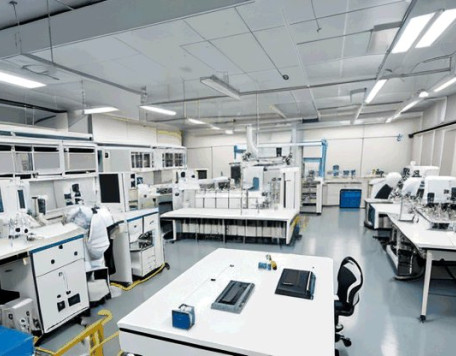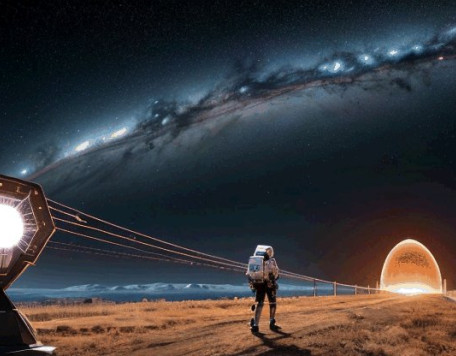© Pint of Science, 2024. All rights reserved.
Embark on a captivating journey at the forefront of technological innovation! Delve into the synergy of AI, robotics, and nanoengineering.
Discover magnetic vortices and synthetic brains, machine learning vs cognitive robotics, and the transformative potential of nanomaterials in smart sensors.
Featuring three remarkable speakers, this talk promises an immersive dive into the thrilling realm of cutting-edge technology.
Discover magnetic vortices and synthetic brains, machine learning vs cognitive robotics, and the transformative potential of nanomaterials in smart sensors.
Featuring three remarkable speakers, this talk promises an immersive dive into the thrilling realm of cutting-edge technology.
Magnetic Vortices: Paving the Road Towards Synthetic Brains
Dr. William Griggs
(Postdoctoral researcher working in spintronics, The University of Manchester. )
Over the last five years, the pace of development in artificial intelligence (AI) capabilities has astonished the public and industry players alike. The most impressive examples such as OpenAI’s ChatGPT occupy vast amounts of physical server space and consume vast amounts of energy, all to achieve a performance which is passably comparable to that of the human brain. By contrast, the brain has a small (albeit wet) form factor and consumes just 20 W of power. There is much hope that by drawing close inspiration from the operating principles of the brain (about which we know surprisingly little), it should be possible to engineer more powerful, more compact, and more efficient AI hardware of tomorrow.
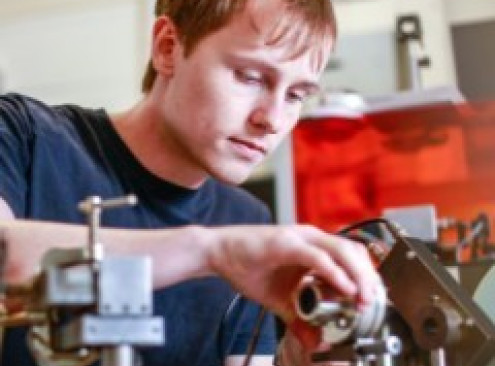
The Intelligence Showdown: Machine Learning vs Cognitive Robotics
Dr. Federico Tavella
(Research Software Engineer at the Cognitive Robotics Lab, University of Manchester)
This talk delves into the clash of two cutting-edge technologies reshaping our future. Explore how machine learning algorithms and cognitive robotics systems compete for dominance in problem-solving, adaptation, and human interaction. Join us for a stimulating discourse on the capabilities, limitations, and ethical implications of these transformative technologies.
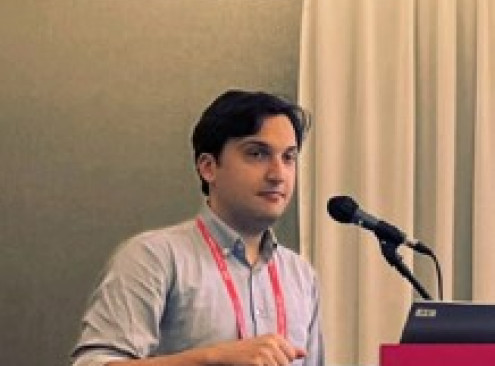
BL!NK: Augmenting Contact Lenses with Sensors
Aayush Chadha
(PhD candidate at University of Manchester)
Contact lenses have long been used for vision correction. However, the continued miniaturization of electronics has enabled engineers to push contact lenses beyond vision correction to endow them with bio-sensing capabilities. Simultaneously, an improved understanding of the brain and ocular physiology has led to the identification of multiple, potential biomarkers for systemic diseases such as Alzheimer’s and Parkinson’s. In this talk, Aayush describes how nanomaterials such as graphene are being used to make such sensors and presents his own work towards making contact lenses smarter.
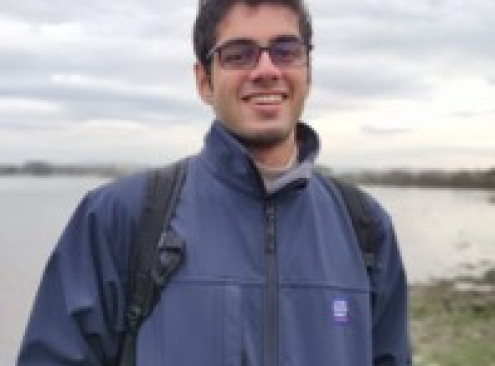
Map data © OpenStreetMap contributors.
Other Station South events
2024-05-13
Biotechnology: Unleashing the Power of Science
Station South
975-977 Stockport Road, Manchester, M19 3NP, United Kingdom
2024-05-14
Technology in Space: Exploring the Cosmos
Station South
975-977 Stockport Road, Manchester, M19 3NP, United Kingdom


